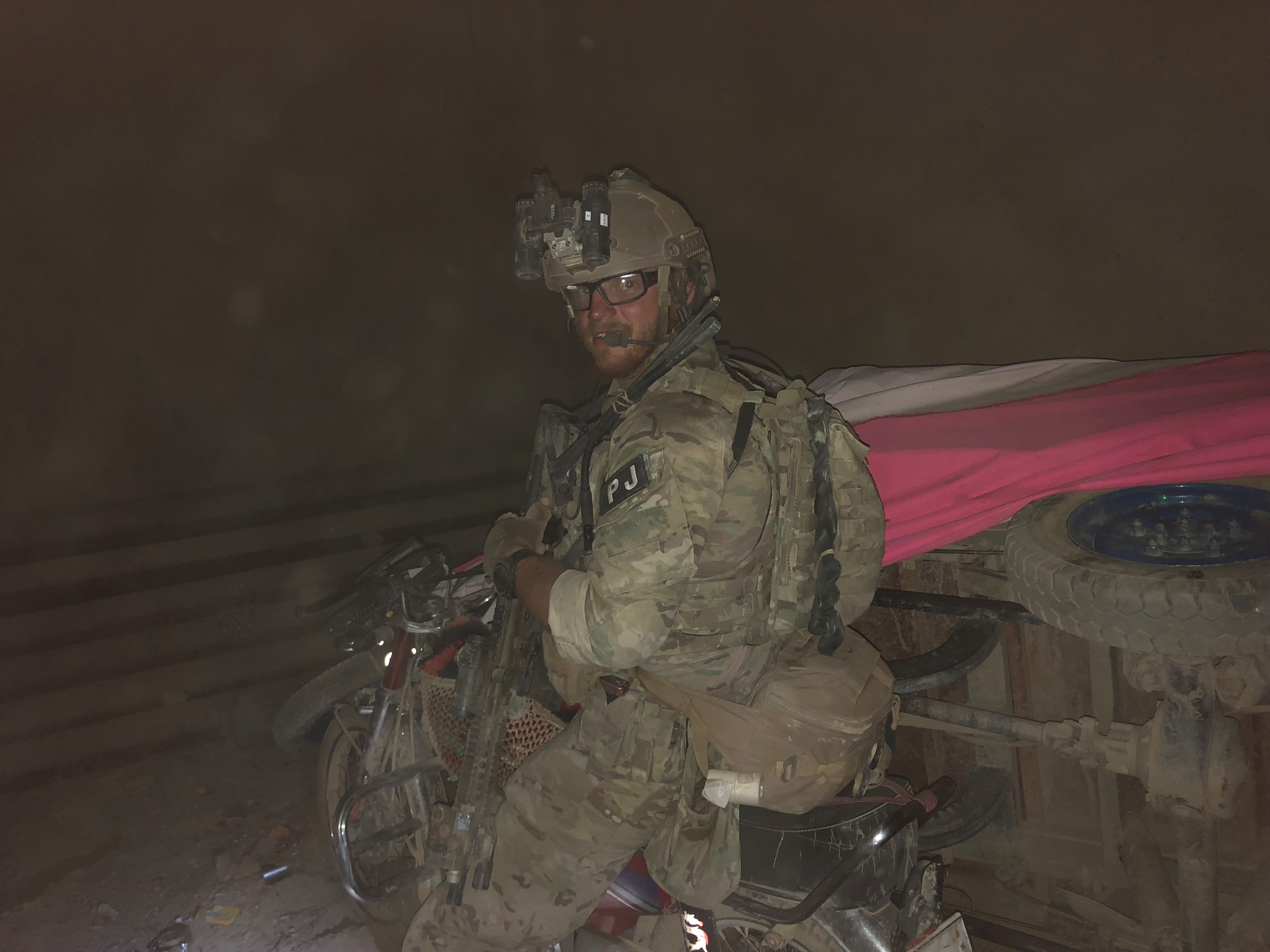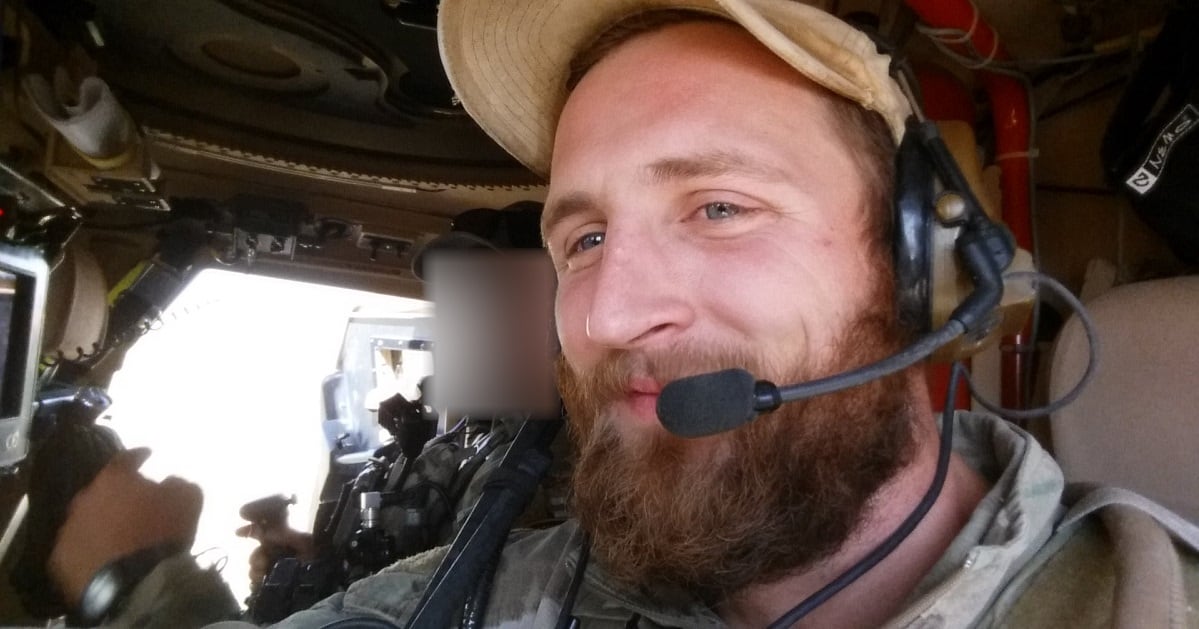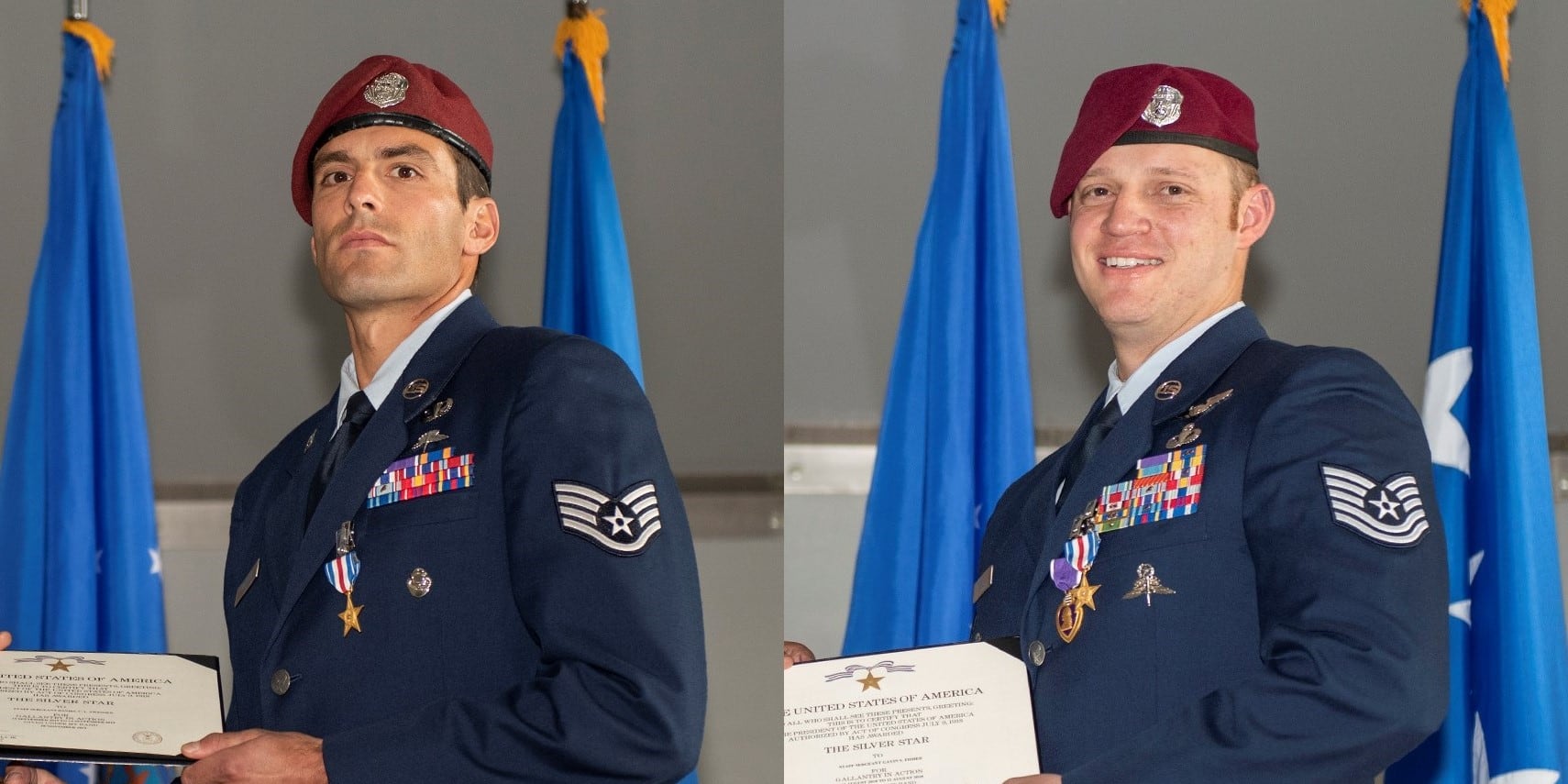Two pararescuemen who rallied their teammates in separate incidents in Afghanistan and fought back against Taliban ambushes — despite each being wounded by rocket-propelled grenade blasts — were awarded the Silver Star for their bravery Friday.
Tech. Sgt. Gavin Fisher of the 350th Special Warfare Training Squadron at Joint Base San Antonio-Lackland in Texas and Staff Sgt. Daniel Swensen of the 58th Rescue Squadron at Nellis Air Force Base in Nevada were both presented with the nation’s third-highest decoration for heroism in combat during a ceremony at Nellis, the Air Force said in a Friday release.
Fisher was honored for his actions during a battle in Ghazni province on Aug. 11 and 12, 2018, and Swensen fought alongside an A-team of Army Green Berets Sept. 13 and 14 of this year in Farah province.
At the ceremony, Pacific Air Forces commander Gen. Charles Brown compared their actions to those of comic book heroes, and noted how rare such true heroism is today.
“We can become so absorbed by the tales and the characters and their abilities that we can lose sight of our real-life heroes — heroes like Tech. Sgt. Gavin Fisher and Staff Sgt. Daniel Swensen,” Brown said. “Only 1 percent of our service men and women, representing 1 percent of the population, have received this Silver Star. So, these gentlemen are in a very exclusive club.”
In Ghazni, Fisher’s actions helped save the lives of 10 critically injured soldiers, medically evacuate 20 casualties and kill 118 Taliban fighters.
The combined joint special operations task force, of which Fisher was a part, was in the midst of a 10-day mission to help drive more than 500 Taliban fighters away from Ghazni city. Fisher was serving as the rear gunner for the lead vehicle of the task force’s convoy, when an ambush erupted. Taliban forces opened fire on the armored vehicles with rocket-propelled grenades and heavy machine guns, the release said.
Fisher was hit by grenade shrapnel, but kept fighting back by returning fire at the Taliban and guiding his vehicle away from the danger.
He cared for two critically injured soldiers, stopping their massive bleeding and giving them blood transfusions — all while continuing to fight off two Taliban fighters. He kept those soldiers stable until a medical evacuation team arrived, the release said. Even though Fisher was wounded, the Air Force said, he still refused to leave with the patients.
Then, a second ambush erupted. Five more partner force teammates were critically injured, and Fisher treated them and requested another evacuation.

The battle raged on as the Taliban continued to attack, and they struck the mission support site, wounding 12 more teammates. “Without hesitation or regard for his safety,” the Air Force said, Fisher made his way through 75 meters of heavy machine gun and small arms fire to treat five of those troops.
He then jumped back into the rear gunner seat of his vehicle and manned the heavy machine gun as the team continued clearing the city. Then, another RPG struck his vehicle and wounded Fisher again.
RELATED

“However, he refused to falter while on guard,” the Air Force said. He returned fire and steered his team to safety, before finally agreeing to be treated for his multiple wounds.
“Getting this medal is important because it lets people know the war is still going on, and valiant efforts by men and women are still going forth,” Fisher said. “People are still out there dying and fighting for each other, and it needs to be recognized.”
The battle in Farah province
During Swensen’s battle earlier this year, the A-team with which he was embedded conducted a helicopter assault to drive the Taliban out of the Anar Darah district center and police headquarters. Meanwhile, Swensen led a ground assault team through a compound. That’s when the Taliban sprung an ambush.
The Taliban poured heavy machine gun fire and RPGs at the compound, from less than 100 meters away. An RPG hit the wall behind Swensen, wounding him and five other troops.
“Injured, trapped and separated from the support fire team, Swensen remained vigilant as he fired back at the Taliban and directed his partner forces to safety,” the release said.
Swensen ran through intense Taliban fire to rescue a severely wounded soldier, whose life-threatening injuries had incapacitated him. He treated that soldier’s wounds and moved him out of danger, all while gunfire struck overhead. While ignoring his own injuries, Swensen gathered the casualties and got them ready to be extracted, the release said. He directed the team to the helicopter landing zone 800 meters away — while carrying one injured soldier on his shoulders.
While they waited for the helicopter, a second ambush erupted. Swensen found cover for the casualties, and then continued treating the critically injured troops, all while remaining exposed to enemy fire. The helicopter arrived and flew the injured to safety, but Swensen remained behind. He led the rest of the team back through the city to retrieve four other casualties before finally allowing his own wounds to be treated.
Swensen helped save the lives of nine American and partner force special operations troops, the release said.
“It’s weird to receive so much attention for something that I feel anyone else would’ve done on the battlefield that night,” Swensen said. “I’m honored my peers think I deserve this medal.”
Stephen Losey is the air warfare reporter for Defense News. He previously covered leadership and personnel issues at Air Force Times, and the Pentagon, special operations and air warfare at Military.com. He has traveled to the Middle East to cover U.S. Air Force operations.





